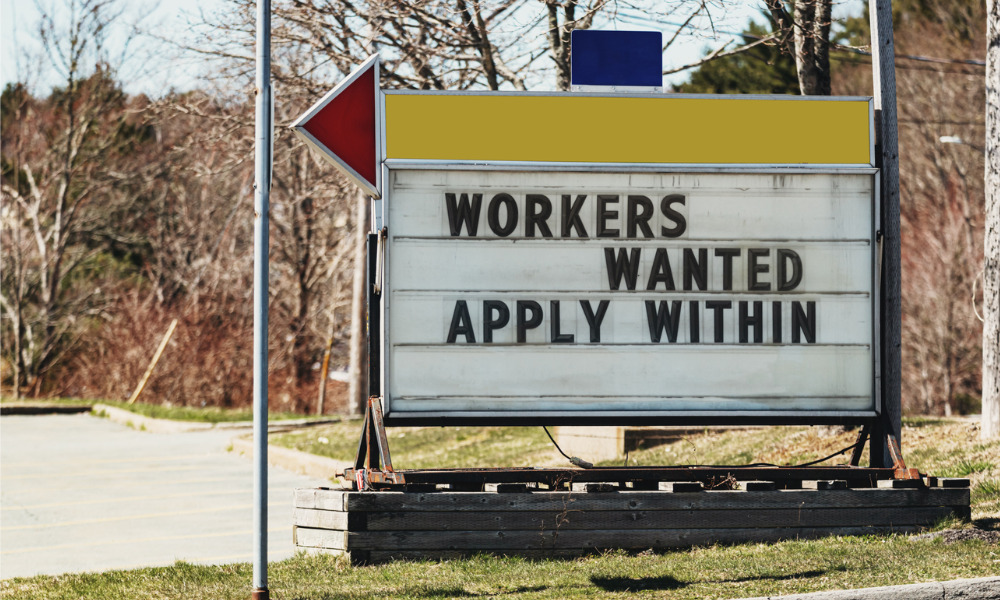Many employers are having difficulty finding workers to restart their operations because people are reluctant to return to work


Given the number of questions that our team is receiving about employees who won’t come back to work amid the COVID-19 pandemic, I will begin by saying this very simply and clearly: Work is not optional.
As the economy has shifted to “getting back to business” mode, it has been interesting to see so many circumstances in which employees have, effectively, rejected a recall to work. In some cases, this has related to legitimate concerns such as health and safety, or childcare obligations.
In others, however, it has been based on a preference to remain home and not go back to work “yet.”
And while I believe it is a small number of people that fall into this category, we have also seen situations where individuals, particularly those who work part-time or in low-paying jobs, have concluded that they would prefer to collect the CERB (Canada Emergency Response Benefit) than return to work.
As a result, many employers have had difficulty getting the workers they need to help them restart their operations, and surprisingly, most of them underestimate their rights and decide that there is nothing they can do about it.
Work is not optional
Although the world has changed significantly over the past few months, and we are in unprecedented circumstances, some things have not changed: Employees do not have the option to “decline” going to work, and they don’t have the right to dictate where or when they will work.
In normal times, an employee wouldn’t be allowed to work on Monday and Tuesday and then decide that they don’t want to work for the rest of the week. Similarly, even if an employee has been off work due to a COVID-19-related layoff or leave of absence, they cannot decide that they don’t want to work when they are recalled and defer their return.
There are only three exceptions to the requirement that someone return to work:
- a COVID-19 related leave of absence
- entitlement to accommodation pursuant to human rights legislation
- the right to refuse unsafe work.
Leave of absence, accommodation
Most provinces implemented some form of leave of absence that will be available to individuals who cannot work due to COVID-19. That would apply, for example, to someone who suffers from a medical condition that makes them particularly susceptible to the virus, or someone that must stay home due to childcare obligations.
All provinces have human rights legislation which entitles workers to accommodation for various personal characteristics. This can overlap with the leaves of absence, as individuals with medical conditions or childcare obligations would be entitled to accommodation.
The duty to accommodate is to the point undue hardship, and does not necessarily mean allowing the person to stay on a leave of absence. It may be possible to accommodate an individual through other means, such as allowing them to work from home or work modified hours.
In one case, we worked with an employer that had an individual who could not use public transportation during rush hour due to a medical condition, and had asked to stay off work until the pandemic was over. However, they were able to be accommodated by having their hours modified so they would not be traveling during peak times.
Refusing unsafe work
The third exception is the right to refuse unsafe work, which allows an individual to refuse to work if their workplace is not safe. It does not relate to general fears, anxieties or concerns of being out in public or traveling to work. There must be a specific and objective safety risk in the workplace in order to invoke this right.
If the employee and employer cannot agree, then a Ministry of Labour Inspector will be assigned to assess the situation. Notably, although there have been many recent complaints, very few have been upheld.
Unless one of the exceptions applies, individuals are expected to attend at work. If they don't, they are effectively abandoning their job. Not only do they risk losing their job, but they also risk losing the government benefits they may be receiving, because those benefits are supposed to be available only to people who cannot work, and not people who choose not to.
What should employers do?
We have encouraged employers to talk to individuals who have “declined” to return and find out why. If they fall within one of the exceptions discussed above, then the employer will have to comply with their legal obligations, which may involve assessing the need and options for accommodation.
We still recommend that employees be allowed to work from home if that is possible. If it is not, having an employee stay off work may not be a bad thing, as most employers are not ready to return to 100-per-cent capacity and may benefit from having some employees choose to stay off work. However, this should be discussed and clearly documented so the employee does not subsequently allege that they were prevented from returning to work.
That said, if you need the individual at work, and they do not have a lawful right to refuse, then you should very clearly explain the consequences of a continued refusal to return. Hopefully, it will not be necessary to act upon that warning.




